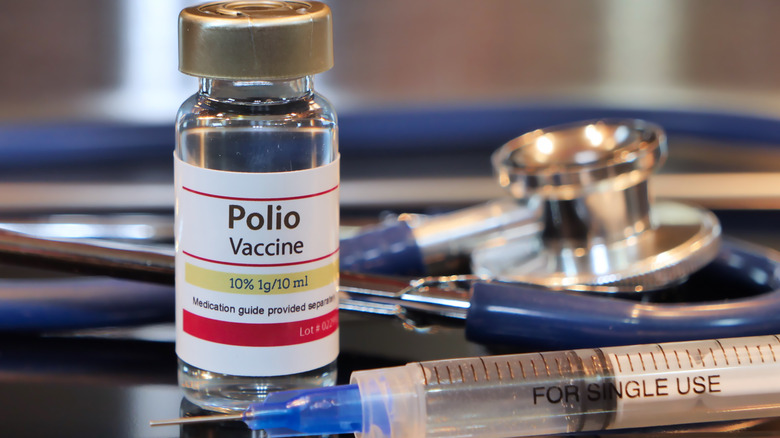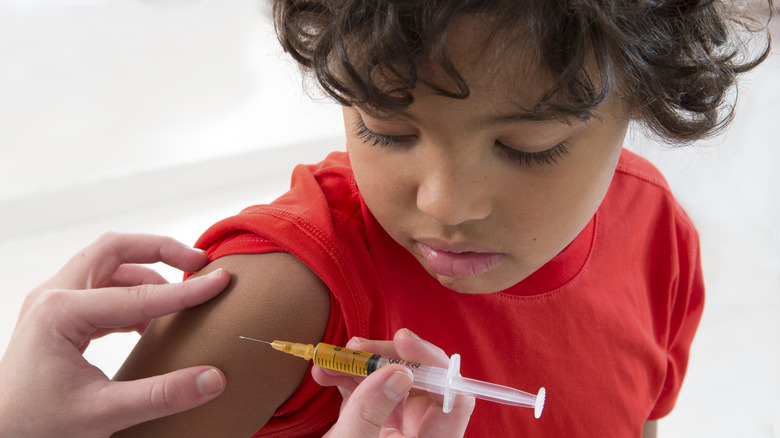The Latest Guidance On Who Should Get A Polio Vaccine
Stemming from the poliovirus, polio is a potentially fatal condition that targets the spinal cord and can lead to paralysis, reports the U.S. Centers for Disease Control and Prevention (CDC). As serious as the disease is, infected individuals often present as asymptomatic. In fact, only 25% of people with the poliovirus exhibit symptoms, such as fever, nausea, headache, stomach pain, sore throat, and tiredness. For those who experience paralysis, it is estimated that between two and 10 cases per every 100 people are fatal. The disease is most often seen in children 5 years old or younger, according to Rotary International. Although there is no cure, united efforts by government organizations worldwide have resulted in a 99.9% drop in polio cases since 1988.
Vaccines have been our best line of defense against polio outbreaks, offering children an over 99% protection rate (via CDC). Now, recent detection of poliovirus in the Northeast has government officials urging those who are unvaccinated to receive their series of polio shots, reports CNN. Specifically, traces of poliovirus have been found in the wastewater of a handful of counties in New York. Signifying the first polio case in the country within roughly the last 10 years, one paralytic polio case has been detected in the county of Rockland, New York, in an unvaccinated individual.
Polio vaccine guidelines vary by age and vaccination status
Able to be transferred through contact with contaminated fecal matter or respiratory particles from an infected person, CNN Medical Analyst Dr. Leana Wen states that the presence of poliovirus in wastewater indicates case numbers may be even higher (via CNN). Dr. Wen advises that those who have been vaccinated need not worry at this time. "People who are vaccinated against polio are extremely well-protected from paralytic polio, and should not be concerned at this point," Dr. Wen told CNN. "Those at risk for serious outcomes are people who are unvaccinated and those who are incompletely vaccinated, including young children under 6 who have not yet completed their polio vaccine series."
Health officials advise that young unvaccinated children receive their doses of the polio vaccine at 2 months, 4 months, between 6 and 18 months, and the fourth and final dose between the ages of 4 and 6 (per CNN). Unvaccinated adults will want to receive three separate doses. After the first shot, another will need to be administered one to two months later, and the third shot should be given six months to a year following the second dose. Those who have received only a portion of their shots will want to complete their vaccination series as soon as possible. Additionally, Dr. Wen also encourages vaccination for residents of Rockland County, New York, at this time.


